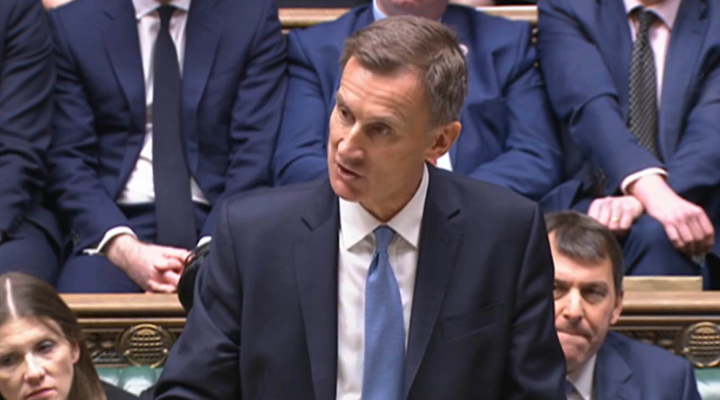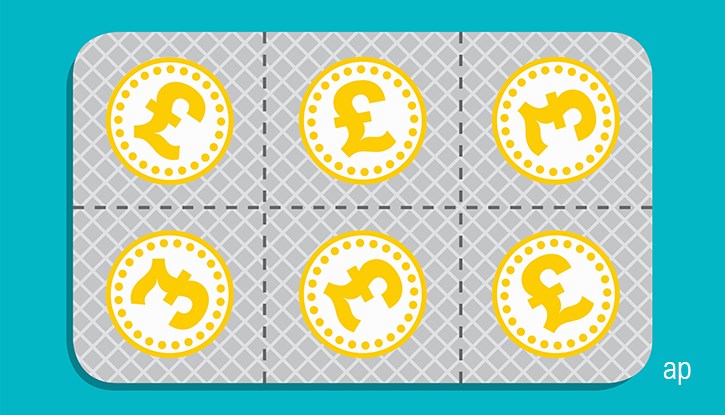
The UK economy is currently in recession, chancellor Jeremy confirmed in his autumn statement today, citing Office for Budget Responsibility (OBR) independent figures.
Latest figures from the Office for National Statistics last week showed the economy contracting by 0.2% in the third quarter of 2022. A recession is usually considered to be two consecutive quarters of declines.
The economy will shrink by 1.4% in 2023, the OBR forecasts, and that compares with the 1.8% growth pencilled at the March 2022 Budget, when prime minister Rishi Sunak was himself still chancellor.
GDP will return to growth in 2024 with a 1.3% increase, Hunt argues, and again that’s below the forecast eight months ago, in this case of 2.1% growth. But by that year, unemployment will have risen to 4.9% from 3.6% now, before falling back to 4.1% next year.
Further out, there’s some potentially upbeat forecasts and I include the March forecasts in brackets: the OBR is predicting a 2.6% gain in 2025 (1.8%), then 2.7% in 2026. (I last looked at the difficulty of long-term economic forecasting in this article from November 2021.)
Energy prices are blamed for most of the growth downgrades, Hunt said.
The chancellor also announced two new fiscal rules in today’s statement: debt must fall as a percentage of GDP over a five-year period, and public sector borrowing over must be below 3% of GDP in the same period.
Silvia Dall’Angelo, senior economist at Federated Hermes: “It is unclear whether today’s announcement included enough action to address the country’s low growth issue. While the pandemic’s legacy of higher debt and an environment of rising interest rates have added to the constraints, the main limit to the UK’s fiscal space is, ultimately, chronically low growth.
While today’s fiscal statement went some way in addressing debt sustainability concerns and the short-term emergency of high energy prices, the issue of low productivity growth looms large and is a potential source of further fiscal disappointments down the line.”
An Olive Branch to Andrew Bailey?
The Bank of England’s remit to keep inflation at a 2% target will remain unchanged Hunt said, and the Treasury and central bank must "work in lockstep" to tackle inflation and other economic problems.
He praised the Bank for doing an outstanding job, a further sign of the détente between central government and Threadneedle Street after a rocky period during the post-Johnson era. In her pitch to be prime minister, Liz Truss had said she would look at the Bank’s remit and powers, 25 years after its independence under the Labour government of 1997.
Inflation is expected to be 9.1% this year but will fall back to 7.4% next year, the OBR predicts. Monthly CPI hit a 41-year high in October of 11.1%, the ONS confirmed yesterday.
Hunt said today the OBR believes the autumn statement will lead to the recession being shallower, and inflation lower, than before these measures were announced – a £55 billion "consolidation", effectively a combination of half coming from tax rises and spending cuts.
Government borrowing is now expected to hit £177 billion in this financial year, which is 7.1% of GDP, and falling back to £140 billion in the next financial year. (In March 2022, the government expected to borrow around £98 billion this current financial year and £50.4 billion in the next financial year – these are major upwards revisions from March.)
Government borrowing will roughly halve by the 2027/2028 financial year to £69 billion, which is 2.4% of GDP.




























